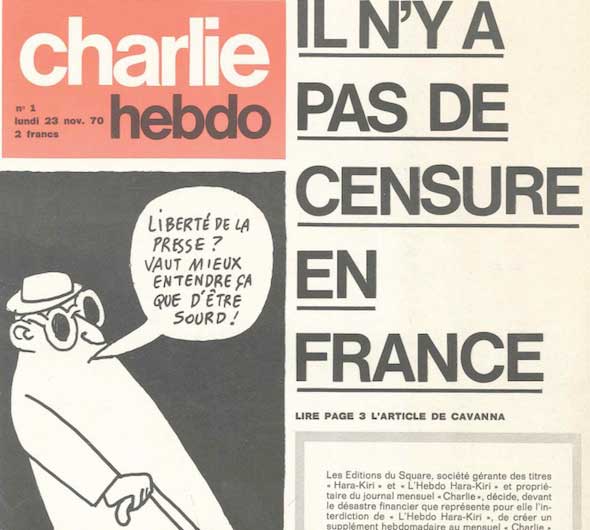“If there’s a book that you want to read, but it hasn’t been written yet, then you must write it!” ―Toni Morrison
From the beginning of time, literature and responsible journalism have mirrored public opinion and public action. Consider author Harriet Beecher Stowe and her bestseller Uncle Tom’s Cabin, which played a big role in creating awareness about the tragic lives of slaves, leading to the American Civil War and ultimately abolishing slavery; or Virginia Woolf’s novels, essays, and more, which urged women and men to take a stand against patriarchal politics. Woolf’s writings (along with other suffragettes) over her lifetime played a strong role in passing the 19th Amendment, earning American women their right to vote. Lincoln’s speeches, Shakespeare’s plays, and the first newspaper publication, Publick Occurrences Both Foreign and Domestick in 1690 stand in rank with Joseph Pulitzer, Tom Wolf (the pioneer of magazine journalism), Agatha Christie, Jane Austen, Tom Sawyer, Charlotte Brontë, Sarojini Naidu, Alex Haley, and others. What do all of these writers have in common? They wrote stories, poetry, and commentary about injustices, human emotions, and societal norms and missteps. Other authors helped create awareness or fueled action to stop or start an insurgence, impeach a President, or reverse a Supreme Court ruling.

The posthumously published author, Anne Frank, a young Jewish girl who chronicled her experiences during the Holocaust, showed us that even under the most despicable of circumstances, we as human beings are capable of possessing an indomitable spirit; she caused hope and even understanding in the bleakest situation. Anne Frank’s journal The Diary of Anne Frank serves as a reminder of what Jews and other minorities went through during such a difficult period in our not so distant past.
“Those who find ugly meanings in beautiful things are corrupt without being charming. This is a fault. Those who find beautiful meanings in beautiful things are the cultivated. For these there is hope. They are the elect to whom beautiful things mean only Beauty. There is no such thing as a moral or an immoral book. Books are well written, or badly written. That is all.” ―Oscar Wilde, The Picture of Dorian Gray
There is a power and an unwritten responsibility in being a writer. Yes, writers have influenced. Before there was radio, television, or YouTube, people received their information or news through books, newspapers, poetry, plays, etc. Just as a television sitcom or a movie is well scripted today in order to appeal to the masses, so was literature in the past. Books took years to write with countless rewrites, and authors had to pass strict guidelines and red tape before a publishing house would ever take a chance on them, especially a new writer. Most authors usually passed this difficult hurdle when they successfully wrote about an issue that was prominent for their time, creating mass interest. A young America, a war-stricken Europe, an impoverished third world country, a free-thinking philosopher, scientist, skeptic or critic usually mirrored the desires of a silenced population. The result—bestsellers—raised consciousness, and ultimately change ensued.
“Journalism allows its readers to witness history; fiction gives its readers an opportunity to live it.” –John Hersey
There is a code of ethics journalists have to adhere to in order to be taken seriously. In investigative reporting, one can never reveal his/her sources. Journalistic writings cannot be with the intent to harm. That means children and victims of crimes should be protected at all cost, unless revealing their identity is going to aid them and they have given their approval to put their name in print. Why am I mentioning journalism?
buy naprosyn generic https://buybloinfo.com/naprosyn.html over the counter
The Internet has altered the rules of ethics. There are no gatekeepers anymore: free press and First Amendment rights border on slander, yellow journalism, and even name calling . . . sometimes to the extent of character assassination. Our easily accessible and modern platform, the blog, started out as a way to publish one’s thoughts freely. The first bloggers were journalists who had an opinion and were tired of following strict journalistic rules. They wanted to rant; they wanted to express their views . . . but whatever they wrote was well researched, supported, written with correct grammar, no profanity . . . and they were careful not to cause harm.
“There has always been a price to pay for those who were too outspoken and too uncensored.”
As with all things that start out well intentioned, there are always those few people who decide to take liberty to a whole new level and offend. Now over half of the legitimate blogs are published posts with unfounded half-truths. The other half has merit and shouldn’t be lumped into this category. Why? Because as you can see, the printed newspaper has become a dying breed—Newspapers are online now, and they still have to follow all the rules of journalism. Magazines (unless with Condé Nast) are also dropping like flies, ending up online, or as digital content. Some magazines are e-books now or are self-published. But the profits are minimal, and the printing costs are astronomical—no longer the lucrative venture printing used to be. Information is too easy to come by with the Internet. Waiting for news in a print medium takes too long, and we have become a spoiled society, demanding immediate gratification.

This leads me to my next point, satire. For centuries, satire has mocked kings, religions, heads of state, cultures . . . nobody is safe. Publications like Eulenspiegel (East Germany/Germany), Fun (London), Frigidair (Italy), Harvard Lampoon (Cambridge), Moskovskaya Komsomolka (Moscow), The Medium by Rutgers (United States), and others like these, which make fun of real life, have been a coveted profession by sarcastic writers around the world. Politicians, lead actors, and basically anybody famous have had to contend with this type of annoyance by virtue of their celebrity status. But there has been a price to pay for those who were too outspoken and too uncensored. The most recent example is Charlie Hebdo, where the mass killing of its contributors shocked the world, but didn’t halt the publication.
“I Do NOT agree with what you have to say, but I’ll defend to the death your right to say it.” –Voltaire
The saddest byproduct of journalism is the senseless murders of journalists who have risked their lives to report the truth. The number of casualties is maddening. Murders to silence writers, to hide corruption, greed, and self-interest have plagued journalists for years. Just in the last 25 years, over 1100 American journalists have been killed trying to do their job. The most recent journalists killed in the United States are Alison Parker and Adam Ward, who were killed on August 26, 2015, during a live news broadcast on WDBJ in Roanoke, Virginia. Journalists serving the Vietnamese, Haitian, and Chinese immigrant communities were killed in political assassinations between 1980 and 1993. Most unsettling were the deaths of journalists beheaded at the hands of ISIS.
There is an unprecedented power of the pen. Free will and the desire to effect change will always be in the minds of responsible journalists; and the talent to cause emotion through writing, whether it is television, screenplays, poetry, literature, satire, or commentary, will always exist. But there will also be those writers whose sole intent is to cause harm. There is such a thing as irresponsible reporting. It’s up to altruistic writers to use their powers for good.
buy neurontin generic https://buybloinfo.com/neurontin.html over the counter
No war was ever won by just one battle. No change can be made by just one article. But just like a gardener planting his seed . . . it’s a damn good start! Violence is only temporary; words last forever.
Read more articles like this in AGENDA SPECIAL EDITION 2 “La Mode 2016”





Pingback: The Power of the Pen – USA Trendings
Pingback: The Energy of the Pen | GetUsaNews
Pingback: The Energy of the Pen | Read It
Pingback: The Energy of the Pen | Check it